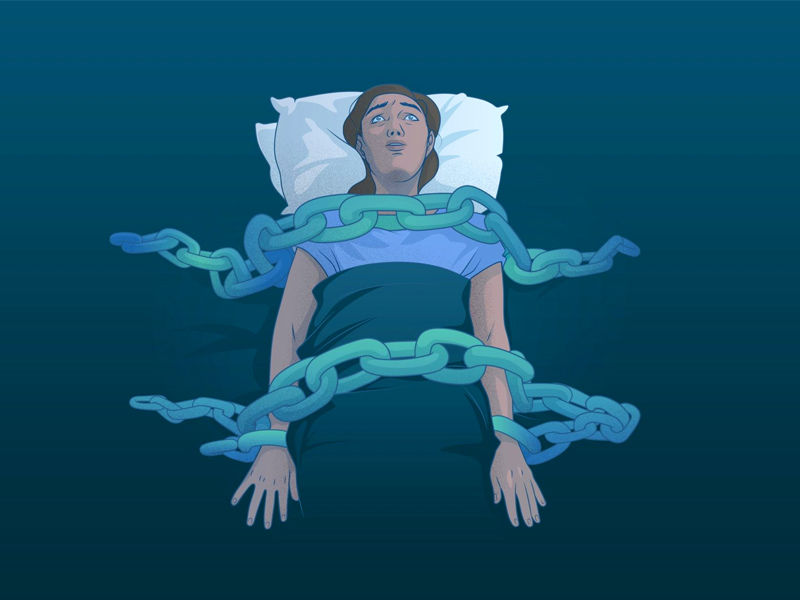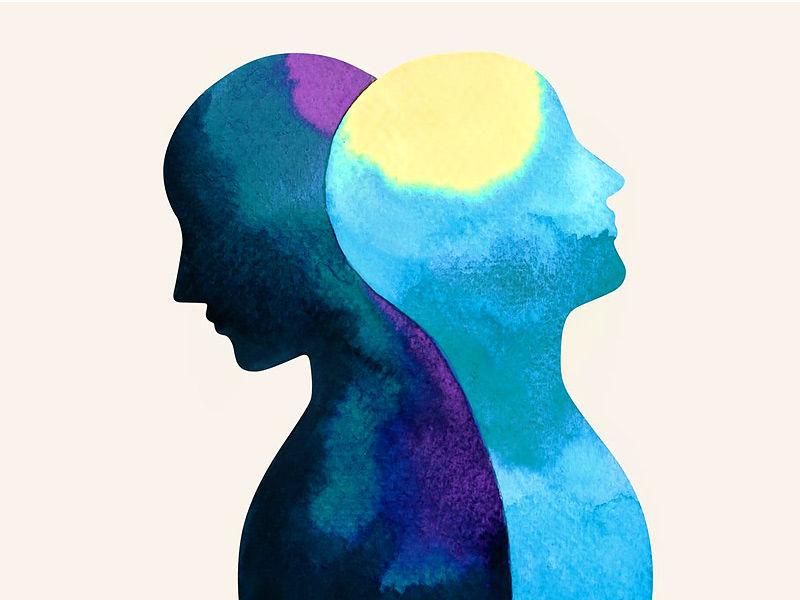Is Sleep Paralysis a Sign of Something Serious?

Sleep researchers have concluded that sleep paralysis is most often simply a sign that your body is not moving smoothly through the stages of sleep. Sleep paralysis is rarely associated with serious underlying psychiatric issues.
Over the years, sleep paralysis symptoms have been described in several ways and frequently linked to an “evil” presence, such as ancient night demons like the old hag mentioned in several of Shakespeare’s works.
Almost every culture has stories about shadowy evil creatures that terrorize helpless humans at night. People have long sought explanations for this mysterious sleep paralysis and the associated terror.
What Exactly Is Sleep Paralysis?

The body sensation in which you can’t move and are awake is called Sleep paralysis, in this state, your body is sleeping but your mind is awake. It occurs when a person switches between stages of wakefulness and sleep.
You may be unable to move or speak for a few seconds to a few minutes, or even longer, while in a state of sleep paralysis. Some people may also feel pressured, choked, or panicked. Narcolepsy sleep disorder also comes hand in hand with sleep paralysis.
The hallmark of narcolepsy is an excessive desire to sleep brought on by a problem with the brain’s capacity to control sleep.
When Is Sleep Paralysis Most Common?

Usually, there are two ways in which sleep paralysis occurs, It’s called hypnagogic or predormital sleep paralysis if it happens as you’re falling asleep. If it occurs as you wake up, it is referred to as hypnopompic or postdormital sleep paralysis.
What Happens When You Have Hypnagogic Sleep Paralysis?
Your body gradually relaxes as you fall asleep. Typically, you become less aware, so you are unaware of the change. If you stay or become aware while falling asleep, you may notice that you are unable to move or speak.

What Is the Cause of Hypnopompic Sleep Paralysis?
Your body alternates between REM (rapid eye movement) and NREM (non-rapid eye movement) sleep while you sleep. A cycle of REM and NREM sleep lasts approximately 90 minutes.
NREM sleep comes first and accounts for up to 75% of total sleep time. Your body relaxes and restores itself during NREM sleep.
At the end of NREM, your sleep shifts from NREM to REM. Your eyes are moving quickly and you are dreaming, but the rest of your body is completely relaxed. During REM sleep, your muscles “shut off.”
Who Gets Sleep Paralysis?

Sleep paralysis can affect up to four out of every ten people. This common condition is frequently discovered in adolescence.
However, it is available to men and women of all ages. Sleep paralysis may be inherited. Other factors that could contribute to sleep paralysis include:
- Sleep deprivation
- Changing sleep schedule
- Stress and bipolar disorder
- Sleeping on your stomach
- Other sleep issues include narcolepsy and nighttime leg cramps.
- Certain medications, such as those for ADHD, are used.
- Abuse of substances
How Is Sleep Paralysis Identified?

You may have isolated recurrent sleep paralysis if you find yourself unable to move or speak for a few seconds or minutes when falling asleep or waking up. It is not always necessary to treat this condition.
One should see a doctor if the following symptoms occur
You are concerned about your symptoms.
Your symptoms cause you to be tired during the day and keep you awake at night.

Also Read: The Significance of Growth Mindset for a Happy and Healthy life
Your doctor may want to learn more about your sleep health by doing one or more of the following:
For a few weeks, ask you to describe your symptoms and keep a sleep diary.
Discuss your medical history, including any known sleep disorders or sleep disorders in your family.
Please be referred to a sleep specialist for further evaluation.
To ensure that you do not have another sleep disorder, conduct overnight sleep studies or daytime nap studies.

Your doctor may want to learn more about your sleep health by doing one or more of the following:
For a few weeks, ask you to describe your symptoms and keep a sleep diary.
Discuss your medical history, including any known sleep disorders or sleep disorders in your family.
Please be referred to a sleep specialist for further evaluation.
To ensure that you do not have another sleep disorder, conduct overnight sleep studies or daytime nap studies.
What Can I Do If I Have Sleep Paralysis?

There’s no need to be concerned about nighttime demons or alien abductors. If you experience intermittent sleep paralysis, you can control it at home.
Make sure you are getting enough sleep to start. Do everything you can to reduce stress in your life, especially right before bedtime.
While experiencing Sleep Paralysis one should try different postures to sleep. Also, if sleep paralysis prevents you from getting a good night’s sleep regularly, see your doctor.

























